|
|
|
| |
Panels
Panel I [28 Oct, 14:00-15:30]: The IEEE 1901.2/1901.2a Standard for Low-Frequency (less than 500 kHz) Narrowband Power Line Communications for Smart Grid Applications and it’s role in the IoT ecosystem
During this panel attendees will have a chance to learn about the IEEE 1901.2/1901.2a Standard and the markets it was designed to target. Panelists will discuss real life examples of products and use cases enabled by the technology defined in this standard. The Smart Grid is one of great examples of IoT and this example provides a clear illustration of cross-domain interaction.
Panel moderator: Oleg Logvinov, STMicroelectronics, USA
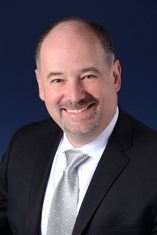 |
Oleg Logvinov is the Director of Special Assignments in STMicroelectronics’ Industrial & Power Conversion Division. After graduating from the Technical University of Ukraine (KPI) with the equivalent of a Master’s degree in electrical engineering, he worked as a senior researcher at the R&D Laboratory of the Ukraine Department of Energy at the KPI. During the last 25 years Mr. Logvinov has held various senior technical and executive management positions in the telecommunications and semiconductor industry. He currently serves on the IEEE Standards Association (IEEE-SA) Corporate Advisory Group and is the past member of the IEEE-SA Standards Board. In January of 2015 Mr. Logvinov was appointed as the chair of IEEE Internet Initiative. The IEEE Internet Initiative connects engineers, scientists, industry leaders, and others engaged in an array of technology and industry domains globally, with policy experts to help improve the understanding of technology and its implications and impact on Internet governance issues. In addition, the Initiative focuses on raising awareness of public policy issues and processes in the global technical community. Mr. Logvinov also actively participates in several IEEE standards development working groups with the focus on the IoT and Communications Technologies. Mr. Logvinov is the chair of the IEEE P2413 “Standard for an Architectural Framework for the Internet of Things’ Working Group. He helped found the HomePlug Powerline Alliance and is the past President and CTO of the Alliance. Mr. Logvinov has twenty one patents to his credit and has been an invited speaker on multiple occasions. |
Panelists
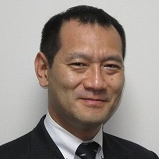 |
Takeo Osawa, Itron, Japan
Takeo Osawa is the General Manager, Director of Sales & Marketing in Itron Japan. After graduating from the University of Tokyo with B.Eng. in electronics and Master’s degree in electrical engineering, he joined Tokyo Electric Power Company (TEPCO) in 1991. He achieved MSEE in computer networking from the University of Washington in 1997. His business experiences in TEPCO cover design & planning of communication network, business development and international technical liaison. He worked as a founding member of various new projects such as the fiber to the home (FTTH) business, the dark fiber leasing business and the smart metering project. He served as a working group member of IEEE P1675, P1775 and P1901 during 2005 – 2007. After serving as Manager at the Washington office and Manager at the smart meter promotion office in TEPCO, he joined Itron Japan in 2014. As the GM and S&M Director of Itron, he works for Itron’s business expansion in Japan to make the best of advanced, standards-based Itron’s technology.
|
 |
Jim LeClare, Microsemi, USA
BSEE University California San Diego, Semiconductor Device Physics. MSEE Johns Hopkins University. 25 years in the semiconductor industry, 16 years with Maxim Integrated Products as Member of the Technical Staff, presently Regional Manager with Microsemi Corporation as well as IEEE 1901.2 Chairman, Low-Frequency (less than 500 kHz) Narrowband Power-Line Communications for Smart Grid Applications. Contributor to text book: MIMO Power Line Communications: Narrow and Broadband Standards, EMC and Advanced processing as well as various Power line Communication papers. |
Panel II [29 Oct, 14:00-15:30]: 5G-PPP METIS-II – Developing the 5G RAN Design
It is a common understanding that the 5th generation of cellular communications (5G) will not only address the communication needs for humans beyond 2020, but also the very diverse needs of massive and mission-critical machine-type communications. A lot of research has already been conducted in the past years to determine the key technology components to address these novel and diverse requirements, and develop first understanding on a possible 5G system architecture. However, there is still the need for substantial consensus-building on key design aspects related e.g. to the overall 5G radio access network (RAN), in particular as 5G standardization is expected to start with first study items in 3GPP already in 2016.
This panel is organized by the 5G-PPP project METIS-II, which has the objective to facilitate consensus building and provide a comprehensive and detailed 5G RAN design for an efficient start of 5G standardization. The audience will obtain a brief insight and latest status on the METIS-II project, and get to know the particular viewpoints on the most controversial aspects related to 5G RAN design from leading network operators, vendors and academia in this field.
Panel moderator: Athul Prasad, Nokia Networks
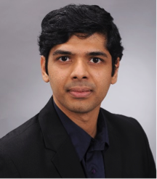 |
Athul Prasad received his M.Sc. (Tech.) degree in communication engineering (with distinction) from Aalto University, Finland, in 2011, where he is currently pursuing a D.Sc. (Tech.) degree in communication engineering. From 2006 to 2009 he was with Huawei Technologies' R&D center in India, and from 2010 to 2012 he worked for Aalto University and as a consultant with Nokia Research Center. From December 2012 until June 2014 he was with NEC Europe Ltd. as a 3GPP standardization researcher and delegate, following RAN2 and RAN3 related topics. Since June 2014, he is working with Nokia, Finland in the Radio Systems research group. His research interests include dynamic resource allocation, mobility management in heterogeneous networks, RF fingerprint based localization, and user plane congestion management in LTE-Advanced networks. He is the (co) author of several international journal and conference papers and (co-) inventor of numerous patent applications. He has won the best paper award at the 77th IEEE Vehicular Technology Conference, held at Dresden, June 2013. He has served as the TPC for several international conferences (IEEE VTC, Globecom, PIMRC, ICCVE) and was the co-chair of Research to Standards workshop organized along with IEEE Globecom 2014. Currently, he is the TPC Co-Chair of IEEE Conference on Standards for Communications and Networking (CSCN) to be held at Tokyo, Japan, in Oct. 2015. |
Panelists
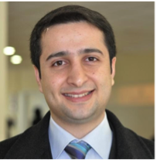 |
Ömer Bulakci, Huawei European Research Center
Ömer Bulakci received the B.Sc. degree in electrical and electronics engineering from Middle East Technical University, Turkey, in 2006, M.Sc. degree in communications engineering from Technical University of Munich, Germany in 2008, and the doctoral degree in communications engineering from Aalto University, Finland, in 2013. From 2009 to 2012, he worked on multihop relay networks including LTE-Advanced standardization at Nokia Siemens Networks, Germany, in support of his doctorate studies. Since October 2012, he has been contributing to EU 5G flagship projects METIS and METIS II at Huawei Technologies ERC, Germany. He is an author or a coauthor of 40+ publications and is an inventor of 10+ patent applications. His research interests include dynamic network topology and system design of 5G networks. He is currently leading the agile resource management framework in METIS II.
|
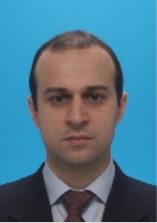 |
Anass Benjebbour, NTT Docomo
Anass Benjebbour obtained his PhD and MSc in Telecommunications in 2004 and 2001, respectively, and his Diploma in Electrical Engineering in 1999, all from Kyoto University, Japan. In 2004, he joined NTT DOCOMO, INC. Since 2010, he has been an active member of the 5G team within NTT DOCOMO, INC. His research interests include system design and new radio access techniques for next generation mobile communication systems (5G), such as Massive MIMO, NOMA, and waveform design. Dr. Benjebbour served as 3GPP RAN1 standardization delegate during LTE Release 11, secretary of the IEICE RCS conference, and editor for the IEICE Communications Magazine. He received the Young Researchers' Award from IEICE in 2006 and the Best Paper award from the PIMRC conference in 2002. He is a senior member of IEEE and IEICE.
|
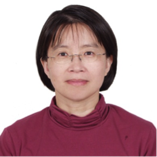 |
Fang-Chu Chen, ITRI
Dr. Chen obtained her Ph.D. Degree from the University of Michigan in the United States. She has been working for the Information and Communication Research Labs (ICL) of Industrial Technical Research Institute (ITRI) since coming back to Taiwan. She led several research projects in Video and Convergence System, and was ITRI’s representative to international standard bodies such as ATSC, DVB, DAB, WiMAX Forum, and MPEG. In addition to technical contributions, she also held several leadership positions, such as chair of Application Lab Task Group in WiMAX Forum, vice chair of 3D-AVC software integration ad hoc group in MPEG, co-editor of 3D-AVC software description standard document in MPEG. She received the Excellent Young Engineer Award from CIEE in Taiwan in 2004.
|
 |
Yoshio Honda, Ericsson
He received B.E. (Electronic and Communication Engineering) in 1985 and M.E. (Information Engineering) in 1987 from Waseda University. He joined Ericsson-Toshiba Japan in 1993, working on the standardization of PDC mobile Communication system in ARIB (Association of Radio Industries and Businesses) and TTC (Telecommunication Technology Committee). He was transferred to Ericsson Japan in 1994 and has been working for the standardization of 2nd and 3rd generation mobile communication systems (FPLMTS/IMT-2000), and for USIM questions in 3GPP in 1998 and 1999. In 1999 he became Senior Manager of IMT-2000 RAN product management. During 2001 and 2004, he was Senior Technical Manager to develop new business, in the areas of WCDMA, CDMA2000, and WLAN. During 2005 and 2006, he was General Manager responsible for marketing WCDMA Core Network solutions. After 2007 he is responsible for Standardization and Regulation in Ericsson Japan, and has been active for standardization of IMT-2000 and IMT-Advanced in ITU-R WP 8F and WP 5D. Currently he is a member of The Fifth Generation Mobile Communications Promotion Forum in Japan (5GMF), and the chair of Spectrum Working Group in 5GMF.
|
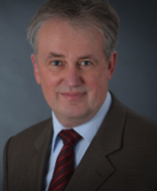 |
Dr. Ingolf Karls, Intel Deutschland GmbH
Dr. Ingolf Karls is program manager in Next Generation and Standards (NGS) team in Intel’s Communication and Devices Group (iCDG). He has accomplished many projects in mobile communication at Siemens AG, Infineon Technologies AG and Intel for more than 20 years. He managed the operation of 14 national and European public funded research and development projects in European FP7. He contributed to national and international regulation and standardization bodies like 3GPP, BITKOM, DLNA, ETSI, IEEE, OMA and OMTP. He holds several patents in the area of wireless communication. His research and development interests are the evolution of LTE and new innovative connectivity solutions for next generation wireless technologies and standards and their translation into products. |
|
|
|
|
|
|
|





